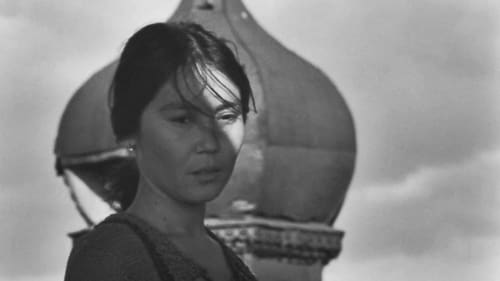Slapper (2016)
장르 : 드라마
상영시간 : 15분
연출 : Luci Schroder
각본 : Luci Schroder, Sam West
시놉시스
Taylah is a rebellious and destitute teen from rural Australian suburbia. After a brief sexual encounter, Taylah must scrape together money for the morning-after pill before it’s too late. As she hustles for the cash, she is also stuck babysitting a wild and uncooperative five-year-old, Vegas. Taylah’s wits are tested as she navigates a suburban wasteland, determined to not let poverty strip her of her bodily autonomy.

Otto Scheidel (Manfred Krug) has been captain of the Elbe steamer Jenissei for over twenty years, but his ship, the last of its kind, is going to be converted into a floating restaurant. Otto, whose his strong attachment to the ship has already cost him his relationship with his girlfriend Caramba (Renate Krößner), refuses to take another job and instead joins a railway construction brigade.

Dr. Charon and his group of mad scientists built a neutron bomb with trying to blackmail the free world for global power. But the hero appears, Neutron, who, with the help of Dr. Thomas and reporter Nora spoil those plans.

In this East German film, the third one in The Third is Margit's third lover. After her mother's death, Margit has two affairs which don't work out, and one lesbian friendship which she retains. She is looking for a husband, though, and thinks she has spotted a candidate in her fellow factory worker. As she contemplates marrying him, her story is told in a series of flashbacks.

In order to stop a vampire from terrorizing the countryside, some locals decide to break into his coffin at night and steal his ashes. Complications ensue.

If any single piece can act as a key to Ruiz, it may be the 1997 short Le Film à Venir (The Film to Come). The titular film is a holy fragment of celluloid that can only be seen by a secret society known as the Philokinetes. They watch it on a loop, somnambulating through a life that is unreal by comparison. It is the belief of the Philokinetes that film has an existence “independent from humans. Cinema, they said, is the primeval soup of a new life form. There from were to emerge pure screening creatures. Which is to say, non-topical beings.” - n+1

A Yangtze Landscape utilizes a non-narrative style, setting off from the Yangtze's marine port Shanghai, filming all the way to the Yangtze River's source, Qinghai/Tibet - filming a total distance of thousands of kilometers. Experimental music and noise recorded live on scene are used in post-production, painstakingly paired with relatively independent visuals, creating a magically realistic atmosphere contrasted with people seeming to be 'decorative figures' right out of traditional Chinese landscape scrolls.

A 13 minute glimpse of the Feria de Cali celebrated between Christmas and New Year… A carnival of commodity fetishism, red devils and white indians that will be recognizable to anyone who has encountered the surrealist ethnographies of Michael Taussig.

중국 하층민의 삶을 카메라에 담은 왕빙 감독의 신작. 알츠하이머병을 앓는 미세스 팡의 마지막 모습을 섬세하게 그리고 시적으로 표현한다. 슬픔과 불안의 순간, 그리고 죽음을 맞이하는 숭고의 순간을 영화적으로 담아낸다.

A film about defying and stretching the generally accepted standards of good motherhood.

전쟁을 소재로 한 장엄한 흑백영화. 제2차 세계대전 중의 러시아에서 소속부대와 연결이 두절된 독일과 러시아 군인들이 잔혹한 죽음을 맞는다. 인간이 유발하는 전쟁의 비극적 요소에 대한 성찰이 돋보이는 작품이다.

As WWII comes to a close, a wounded Soviet soldier and a Kazak woman seek refuge in a church. In this holy place, they take time to rest and appreciate the beauty of their surroundings, as the interior of the building is lined with ornate works of art. A group of Nazi soldiers eventually disrupts this moment of peace, as they enter the church and defile the sacred works within. Undetected, the original occupants witness this atrocity and the proud Russian feels compelled to fight in an effort to preserve his country’s history.

In the wake of their father’s death, two children gradually come to realize the perverse nature of their upbringing.








